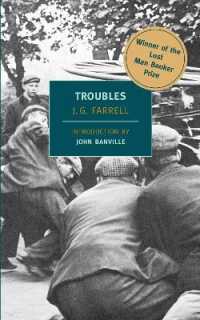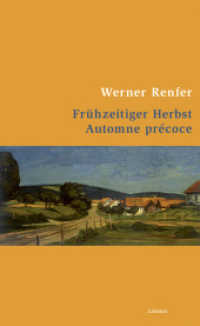- ホーム
- > 洋書
- > 英文書
- > Literary Criticism
Full Description
Shortlisted for the University English Early Career Book Prize 2016
Shortlisted for the British Association for Romantic Studies First Book Prize 2015
When writers of the late eighteenth and early nineteenth centuries explored the implications of organic and emotional sensitivity, the pain of the body gave rise to unsettling but irresistible questions. Urged on by some of their most deeply felt preoccupations - and in the case of figures like Coleridge and P. B. Shelley, by their own experiences of chronic pain - many writers found themselves drawn to the imaginative scrutiny of bodies in extremis. Bodily Pain in Romantic Literature reveals the significance of physical hurt for the poetry, philosophy, and medicine of the Romantic period.
This study looks back to eighteenth-century medical controversies that made pain central to discussions about the nature of life, and forward to the birth of surgical anaesthesia in 1846. It examines why Jeremy Bentham wrote in defence of torture, and how pain sparked the imagination of thinkers from Adam Smith to the Marquis de Sade. Jeremy Davies brings to bear on Romantic studies the fascinating recent work in the medical humanities that offers a fresh understanding of bodily hurt, and shows how pain could prompt new ways of thinking about politics, ethics, and identity.
Contents
Preface 1. Romanticism and the Sense of Pain 2. Bentham's Absolute 3. Sade's Unreason 4. Living Thorns: Coleridge and Hartley 5. Shelley: A Sense of Senselessness 6. Conclusion








